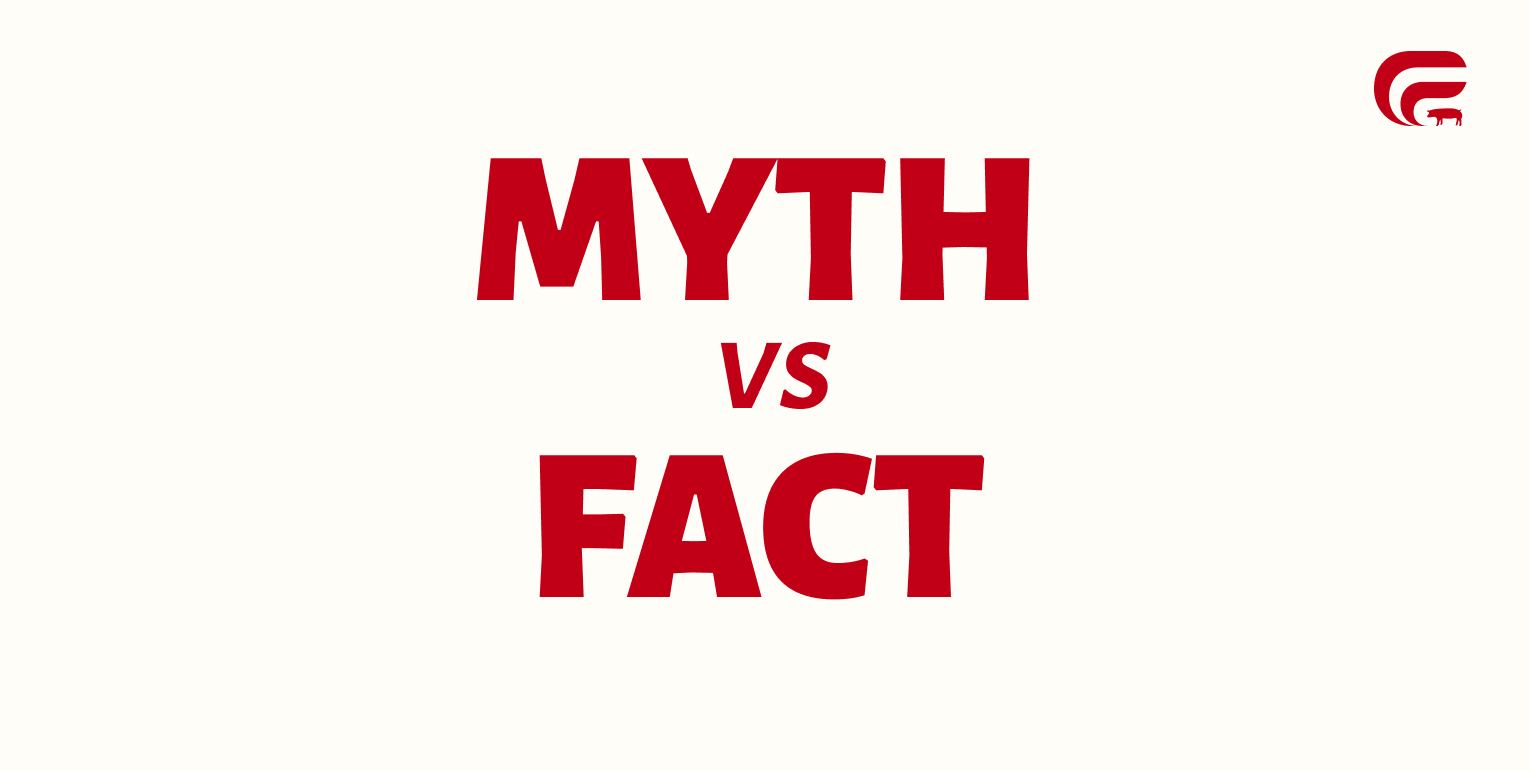Setting the Record Straight on California Proposition 12
Proposition 12 is a California ballot initiative prohibiting the sale of pork not produced according to the state’s arbitrary livestock housing regulations. These standards, which were developed without input from hog farmers, veterinarians or experts in animal care or food safety, hurt farmers and consumers throughout the country, while disproportionately affecting low-income households. The facts surrounding this misguided measure must be considered as lawmakers develop a federal solution.
| MYTH | FACT |
| A Proposition 12 legislative fix would erode states’ rights. | Proposition 12 is an example of extreme regulatory overreach, allowing California to force arbitrary, burdensome restrictions on farmers in other states. Legislation seeking to address Proposition 12, such as the Save Our Bacon Act, restores states’ rights to regulate markets within their own borders, rather than having a singular state dictate how food must be produced throughout the entire country. |
| The Supreme Court has already weighed in on this issue. | While the Supreme Court upheld Proposition 12, it also reaffirmed an important point: under the Constitution, Congress has the ultimate authority to regulate interstate commerce. The Supreme Court made it clear that Congress can and should fix Proposition 12. Now is the time for Congress to act – to protect the free flow of pork across state lines and prevent a patchwork of conflicting state regulations that threaten farmers, consumers, and the nation’s food supply. |
| Proposition 12 is better for small and mid-size family farms. | The cost of Proposition 12 compliance is steep – between $3,400 and $4,500 per sow for new construction. For small and mid-sized farmers, who often struggle to get loans or credit, this is an onerous expense and may be 25-40% more per sow than other housing styles. Many family farms could soon face an impossible choice: spend upwards of $10 million to build new facilities that reduce their productivity and profitability, or lose access to a critical market. The United States is already losing family farms at an alarming rate, which threatens U.S. food security and livelihoods across rural America. Prop 12 only makes this worse |
| Halting Proposition 12 is bad for pork farmers. | Even Proposition 12 compliant pork producers, who have already invested millions of dollars to retrofit their farms, want Congress to intervene to stop California and other states from imposing harmful regulations. |
| Proposition 12 won’t impact operations in the long run, because American pork producers can innovate and easily respond to market demands. | An uncertain patchwork of regulations would make it impossible for farmers to make long-term investments and plans for the future of their operations. Proposition 12 and regulations like it serve as a barrier to innovation, not a driver of it. Innovation works best when farmers can make the changes American consumers demand; not when topdown restrictions are forced on American farmers that distort the market and hinder investments in the future. |
| Voters want Proposition 12. | While California voters approved Proposition 12, most Americans still don’t know much about it or how it affects farms and the food supply. In fact, polling in 2024 and 2025 showed one in four voters could not pick a side on Proposition 12, largely because they haven’t heard about the full costs and consequences of the law. When people do hear both sides, most oppose Proposition 12 and similar measures. The more voters learn about the consequences of Proposition 12, the stronger they feel that Proposition 12, and similar measures, is the wrong path forward. |
| Proposition 12 will not raise the price of pork or impact consumer access to nutritious food. | Proposition 12 can increase on-farm production costs by more than 15%. This means higher pork prices for consumers and less affordable protein for families throughout the country. At the same time, Proposition 12 will accelerate industry consolidation – hitting small and medium-sized farms the hardest. Prices for covered pork products in California are 20% higher today due to Proposition 12, and forcing high-cost production practices on more of the U.S. pork industry threatens these impacts to consumers across the country. |
| Proposition 12 only affects the state of California. | While Proposition 12 applies to the sale of uncooked whole pork meat in California, it places the cost and compliance burden on hog farmers nationwide – 98% of whom are located outside of the state. By using its market power, California is effectively dictating farming practices across the country and even abroad, imposing rules that conflict with trade agreements negotiated by the U.S. and international organizations. |
| Proposition 12 is needed to ensure animal health and welfare. | Proposition 12’s arbitrary housing standards do not improve animal health and welfare. The health of pigs is not only important to the farmers who raise them, but also critical to the success of their operations. American swine producers take animal health and welfare seriously, relying on established scientific research and trusted veterinarian recommendations. The American Veterinary Medical Association and other animal health experts agree that Proposition 12 ignores the established science and veterinary recommendations, presents biosecurity risks, and does not improve animal health. |
Download a copy of the fact sheet here.

